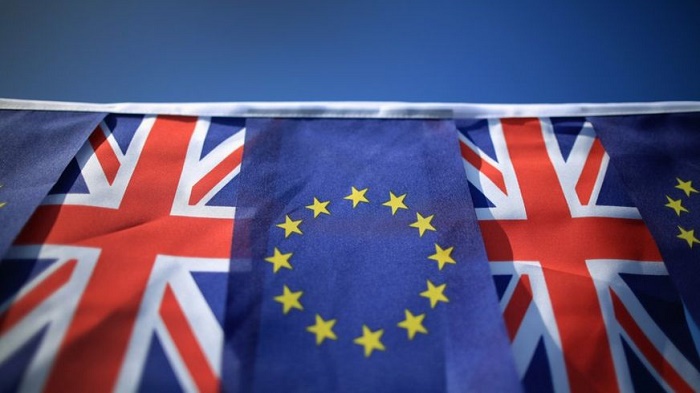The prime minister’s red lines limit what Brussels can offer the UK, the paper says, and in return for even a limited free-trade agreement, the British government will have to sign up to a commitment not to become a low-tax, low-regulation state undercutting the EU model.
The guidelines further warn that Brussels will not push on with negotiations on the trade until May signs up to a legal text that translates all the commitments made by the UK government in the first phase of negotiations, including on avoiding a hard border on the island of Ireland.
May has refused to accept the EU’s draft withdrawal agreement as it suggests Northern Ireland may need to effectively stay in the customs union and single market.
The EU’s opening position on the trade talks says: “Negotiations can only progress as long as all commitments undertaken so far are respected in full, and calls for intensified efforts on the remaining withdrawal issues. The European Council reiterates that nothing is agreed until everything is agreed.”
The substance of the document, however, lays out across its six pages Brussels’ intentions for the future trading relationship.
Despite the prime minister’s calls in her Mansion House speech last week for creative thinking from Brussels, the EU says the UK’s red lines “limit the depth of such a future partnership” and warns that as a consequence the British economy will suffer.
It says: “Being outside the customs union and the single market will inevitably lead to frictions. Divergence in external tariffs and internal rules, as well as absence of common institutions and a shared legal system, necessitates checks and controls to uphold the integrity of the EU single market as well as of the UK market. This unfortunately will have negative economic consequences.”
The document says:
- The EU will stand firm against May’s suggestion that the UK could have associate membership of its agencies, including in aviation. “The European council further reiterates that the union will preserve its autonomy as regards its decision-making, which excludes the participation of the United Kingdom as a third-country to EU institutions, agencies or bodies”, it says. “The role of the court of justice of the European Union will also be fully respected.”
- The EU27 want a deal that covers “all sectors” in goods, and they will aim for zero tariffs or quantitative restrictions in the negotiations.
- There will need to be “rules of origin” checks and other controls on the borders, which could hamper trade, and there is a linking of access to the European market for UK seafood exporters to the continuation of many aspects of the common fisheries policy. The document says: “In this context, existing reciprocal access to fishing waters and resources should be maintained.”
- The EU does not directly address the demands of the British government for a deal for the financial sector but suggests there will severe limits on how far it will go in services as “the UK will no longer share a common regulatory, supervisory, enforcement and judiciary framework.”
- In aviation, the EU wants “to ensure connectivity between the UK and the EU after the UK withdrawal” through “an air transport agreement, combined with an aviation safety agreement”. But there is no suggestion that the current freedoms for UK airlines to operate within the continent will continue.
- The UK will be expected to pay into the EU budget for involvement in “research and innovation and of education and culture”.
As a backdrop, the EU insists there will be strong state aid and taxation demands on the UK to prevent it from following a Singapore model in which it seeks to undercut the EU’s economy.
It says: “Given the UK’s geographic proximity and economic interdependence with the EU27, the future relationship will only deliver in a mutually satisfactory way if it includes robust guarantees which ensure a level playing field.
“The aim should be to prevent unfair competitive advantage that the UK could enjoy through undercutting of current levels of protection with respect to competition and state aid, tax, social, environment and regulatory measures and practices.”
There is a desire for a close security agreement in “light of the geographic proximity and shared threats faced by the union and the UK”, and “in the fields of security, defence and foreign policy there should be no gap in the EU-UK cooperation as a consequence of the UK withdrawal from the union”.
The EU says that it is open to revisiting its position at the next European Council summit in June should the UK shift on its positions.
The Guardian
More about: Brexit
















































